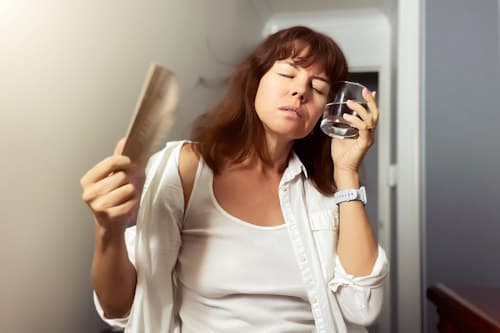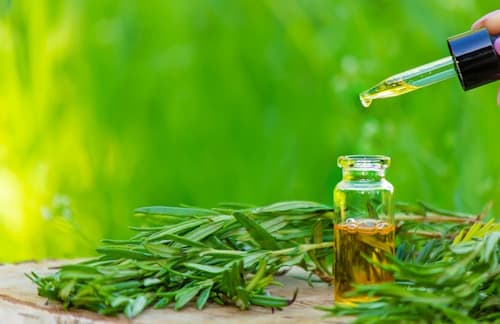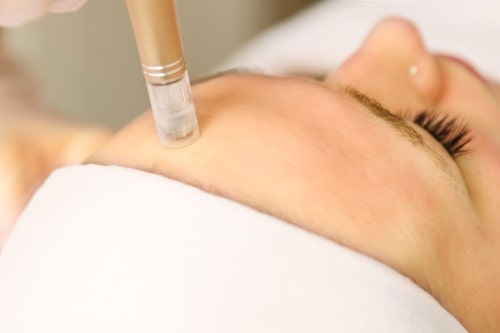Hormonal acne, often a puzzle for those affected, is a skin condition that can be both frustrating and challenging to manage. Understanding the best treatment for hormonal acne is not just about finding a quick fix .
It involves a comprehensive approach that addresses the root causes and symptoms of this particular type of acne. In this article, we delve into the various aspects of hormonal acne and explore the most effective treatments available.
Also read: How to choose the best acne treatment
Biggest Take-Aways:
- Hormonal acne requires a multifaceted treatment approach, including lifestyle changes, topical treatments, and sometimes medication.
- Women are more prone to hormonal acne due to fluctuations in hormone levels, particularly during events like menstruation, pregnancy, and menopause.
- Consistent skincare routines and lifestyle adjustments are crucial in managing and preventing hormonal acne.
- Exposed Skin Care offers an effective and gentle solution for those struggling with hormonal acne, focusing on reducing inflammation and preventing future breakouts.

Understanding Hormonal Acne
What Causes Hormonal Acne?
Before diving into treatments, it's crucial to understand what hormonal acne is and what causes it. Hormonal acne occurs when fluctuations in hormone levels trigger excessive sebum production, leading to clogged pores and inflammation.
This type of acne is common in adults between the ages of 20 and 50, particularly in women, due to hormonal fluctuations associated with menstrual cycles, pregnancy, or menopause.
Key Characteristics
- Location: Often appears around the jawline, chin, and sometimes on the back.
- Type of Acne: Includes cysts, blackheads, whiteheads, and sometimes severe acne.
- Persistence: Can be stubborn and persistent, often resisting typical acne treatments.
What Is the Best Treatment for Hormonal Acne?
Hormonal Treatments
1. Oral Contraceptives
Oral contraceptives, particularly those containing estrogen and a low dose of progesterone, can be effective in balancing hormone levels and reducing acne in women.
2. Spironolactone
This medication, originally used to treat high blood pressure, has been found effective in treating hormonal acne by blocking androgen receptors and reducing sebum production.
Topical Treatments
1. Retinoids
Topical retinoids help in shedding dead skin cells and preventing clogged pores. They can be effective in treating both whiteheads and blackheads.
2. Benzoyl Peroxide
Benzoyl peroxide is a common ingredient in acne treatments because it kills acne-causing bacteria and reduces inflammation.

3. Spot Treatments
These are designed for applying directly to the breakout to reduce size and redness.
Skincare Routine Adjustments
1. Gentle Cleansers
A gentle cleanser helps clear the skin without causing additional irritation or drying out the skin.
2. Non-comedogenic Products
Selecting skin care products that do not clog pores is crucial in managing hormonal acne.
3. Regular Exfoliation
Exfoliation helps in removing dead skin cells and preventing clogged pores but should be done gently to avoid irritation.
Lifestyle Modifications
1. Diet Changes
Reducing dairy and high-glycemic foods may help in some cases, as they can trigger hormonal fluctuations and inflammation.
2. Stress Management
Stress can exacerbate hormonal imbalances, so incorporating stress-reduction techniques like yoga, meditation, or regular exercise can be beneficial.
Managing Hormonal Acne Without Medication
Natural Remedies
1. Tea Tree Oil
Known for its antibacterial properties, tea tree oil can be an effective spot treatment.

2. Green Tea
Applying green tea topically or consuming it can reduce inflammation associated with acne.
Lifestyle Changes
1. Balanced Diet
A diet rich in fruits, vegetables, lean proteins, and whole grains can support overall skin health.
2. Adequate Hydration
Drinking plenty of water helps in detoxifying the body and maintaining healthy skin.
Consistent Skincare Routine
Establishing a daily skincare routine that includes cleansing, moisturizing, and protecting the skin from sun damage is essential for managing hormonal acne.
Advanced Treatments for Stubborn Hormonal Acne
Chemical Peels
Chemical peels can help reduce the appearance of scars and improve skin texture by removing the top layer of dead skin cells.
Laser Therapy
Laser treatments can reduce inflammation and the appearance of scars, although they may not be an option for everyone.
Microneedling
This procedure involves creating tiny punctures in the skin to stimulate collagen production and can effectively treat acne scars.
Hormonal Acne in Specific Populations
Adult-Onset Acne in Women
50 percent of women in their 20s to 30s experience adult-onset acne, often due to hormonal fluctuations.
Hormonal Acne in Men
While less common, men can also experience hormonal acne, primarily influenced by the male hormone androgen.
Preventative Measures
Avoiding Triggering Factors
Identifying and avoiding factors that exacerbate acne, like certain foods or stress, can be helpful in prevention.
Regular Dermatological Checkups
Regular check-ups can help monitor the skin’s condition and adjust the treatment plan as needed.
The Benefits of Using Exposed Skin Care for Acne Management
Through its comprehensive skincare line, Exposed Skin Care offers a unique approach to combating acne, including stubborn cystic acne. This system uses a blend of scientific and natural ingredients to target the root causes of acne.
Here are the benefits of Exposed Skin Care:
Here are some key benefits:
- Reduces Cystic Acne: Exposed Skin Care is specifically formulated to penetrate deep into the skin, targeting the cysts that cause cystic acne, effectively reducing their size and frequency.
- Prevents Pimple Formation: The products work synergistically to unclog pores and prevent the formation of new pimples.
- Balances Oil Production: By regulating sebaceous glands, Exposed Skin Care helps balance oil production, a common factor that can cause acne.
- Complements Other Treatments: For those using birth control or other medications to manage acne, Exposed Skin Care can be an effective adjunct, enhancing overall skin health without interfering with other treatments.
- Minimizes Skin Irritation: Unlike harsh acne treatments, Exposed Skin Care is designed to minimize irritation, making it suitable for long-term use without damaging the skin.
Incorporating Exposed Skin Care into your skincare routine can lead to clearer skin, reduced incidence of acne, and an overall healthier complexion.
Conclusion
In conclusion, hormonal acne is a common skin condition that can be challenging, but with the right treatment plan, it can be managed effectively and even clear acne. Understanding the underlying hormonal causes is key to targeting this type of acne.
Women, in particular, may experience persistent acne due to hormonal fluctuations, and finding the best treatment can involve a combination of medications, lifestyle adjustments, and skincare products.
Hormonal acne treatments have evolved to address the unique aspects of adult acne, focusing on preventing breakouts and reducing the severity of active breakouts.
It's important to note that acne isn't just a surface issue; it's often linked to deeper medical conditions. Therefore, an acne treatment plan should be comprehensive and adaptable, gradually increasing in intensity if needed.
Exposed Skin Care offers a gentle yet effective solution for those struggling with stubborn acne. Its ability to help clear skin without worsening hormonal acne is a significant advantage. Remember, clear skin is achievable with patience and the right approach, and the journey to get rid of hormonal acne is a step towards healthier, happier skin.
FAQs
Can hormonal acne be completely cured?
While hormonal acne can't always be completely cured, it can be effectively managed and controlled with the right treatment plan.
Does diet have an impact on hormonal acne?
Yes, diet can impact hormonal acne. Foods that cause hormonal fluctuations or inflammation, like dairy and high-glycemic foods, may exacerbate acne.
Are hormonal acne treatments safe during pregnancy?
Some hormonal acne treatments may not be safe during pregnancy. It's essential to consult a healthcare provider before starting any treatment.
What role do hormonal fluctuations play in adult acne?
Hormonal fluctuations, especially common in women, can lead to increased oil production and clogged pores, resulting in adult acne.
How does Exposed Skin Care help with hormonal acne?
Exposed Skin Care helps by targeting the root causes of acne, such as clogged pores and inflammation, and is formulated to be gentle yet effective for various skin types.


















